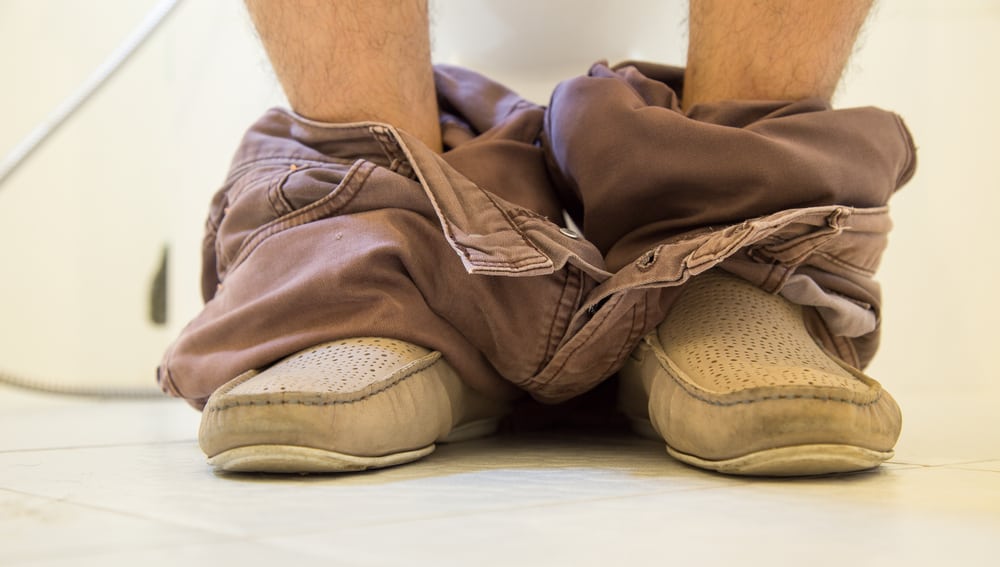Contents:
- Medical Video: Bulimia and Binge Eating in Teens: What We Know and What To Do
- Causes of bulimia in children
- Signs of bulimia children to watch out for
- Bulimic impact on children
- How to overcome bulimia in children?
Medical Video: Bulimia and Binge Eating in Teens: What We Know and What To Do
Eating disorders are more closely related to adult health problems. However, children can also experience it. One of the most common eating disorders is bulimia - often found in late adolescents to young adults (18-21 years). Bulimia is a real health condition that adversely affects the health of adolescents who are in the golden age of growth. So, watch out for signs of bulimia and what you can do as a parent.
Causes of bulimia in children
Children who have bulimia nervosa experience the urge to crave or crave food that cannot be resisted, so they are happy and often eat large portions (a sign of binge eating). However, bulimic children also have a tendency to fear fat.
So to prevent weight gain after eating, children usually regurgitate their food. This can be achieved by plugging your finger into your own throat to really vomit, using excessive laxatives, regular fasting, and consuming appetite suppressant drugs.
Bulimia is often accompanied and / or associated with mental health disorders such as anxiety disorders, negative body image, severe stress, and others. Bulimia in children can also be triggered by mental stress from the social environment (peers and the influence of mass media), to genetic factors. Having family members who also experience bulimia can increase a person's risk of experiencing these eating disorders.
Signs of bulimia children to watch out for
To recognize the signs of bulimia in adolescents, it is important to look for a consistent presence of some or all of the following behaviors:
- Eating too much, more than usual. If your teen suddenly consumes more food at dinner or while snacking (time is short and limited), this can be a tendency to binge eating.
- Feel unable to control or stop eating as soon as it starts.
- Continue to eat even though you feel full
- Express excessive worry and anxiety about body weight or body shape.
- Having feelings of guilt, shame or anxiety after eating.
- Secret eating behavior. Bulimic children often feel embarrassed by their eating behavior, so eating time can trigger stress. If your teen has closed behavior when you have to eat, such as stockpiling food or preferring to eat alone, this can be an indication of a problem.
- Vomiting frequently
- Skipping meals or extreme diets to 'improve' overeating behavior.
- Use of diet pills or laxatives that are not normal for weight control.
- Irregular menstruation
- Glands in the mouth are swollen
- Rapid fluctuating body weight caused by periods of overeating and then fasting
- Swelling of the face (under the cheeks), ruptured blood vessels in the eyes, enamel erosion and tooth decay, esophageal damage, and internal bleeding
- Repeated efforts to reduce weight with excessive steps
- Excessive exercise, at times or in improper ways, or even when sick or injured.
It is important to look for medical help if you are aware of one or more of the above bulimia symptoms that occur in your child. If not treated, bulimia can cause long-term physical and psychological damage.
Bulimic impact on children
Children who experience bulimia generally look normal with a body weight that is categorized as fat, normal to too thin. Nevertheless the risk of malnutrition is very large due to mental health problems and eating disorders and tends to be difficult to recognize. Children with bulimia may have recognizable physical signs such as:
- The face appears swollen due to swelling of the parotid glands near the ear.
- There are scarring around the hand due to frequent insertion of fingers or hands into the oral cavity.
- Damage to the mouth and teeth caused by exposure to stomach acid when vomiting food can also cause abrasion of the esophageal gastrointestinal tract.
- Girls do not have regular menstrual cycles.
- Body weight rises dramatically and is united due to poor diet
Bulimia also causes sufferers to hide their habits and not seek help because they feel guilty and ashamed. This habit can also be seen from the withdrawal behavior of the surrounding environment. The consequence is that children with bulimia are at risk of developing developmental disorders in adolescence and suppressing their intelligence potential and creativity.
How to overcome bulimia in children?
Here are some things parents or caregivers can do to treat bulimia in children
- Pay attention to the condition of the child - recognize more in terms of what causes children to experience eating disorders is an important first step. Listen when a child tells a story or is telling something, the selection of words or tones that become slower may be a sign when they have problems with the topic being discussed. Pay attention to your diet and talk if you know children often throw up food or accidentally miss their meals. Pay attention to the social environment and the media or the website that they access may be the cause of eating disorders.
- Improve the atmosphere when eating - can be done by creating a pleasant dining atmosphere with family. It can also emphasize the importance of diet and the adequacy of nutrition for health so that it can improve children's views on food.
- Give examples to children - adults are very influential in shaping the understanding of the importance of choosing healthy food and a good view of the body possessed by children. Avoid conversations that can give rise to discomfort for children about their bodies. Conversely when the child feels uncomfortable or has negative thoughts about the body he has talking about sports and eating patterns in the context of health. The encouragement of parents so that children are active in physical activity and have a healthy diet is needed.
- Psychological therapy - Cognitive behavioral therapy can be the next choice to reduce the intensity of bulimia behavior. The therapist will also try to solve other problems related to the emergence of bulimic behavior such as negative thinking about body weight and body shape, irrational thinking about diet and weight and increasing self-control and improving the child's view of their body.
- Treatment - aimed at complications from bulimia such as the appearance of arrhythmias and hypotension. Hospital care also allows a bulimic scout to reduce habits carried out at home without supervision. Improvement of nutrition and diet by providing structured food and snacks is very necessary so that they feel again familiar with food, restore nutrition and prevent binge eating from happening again.












